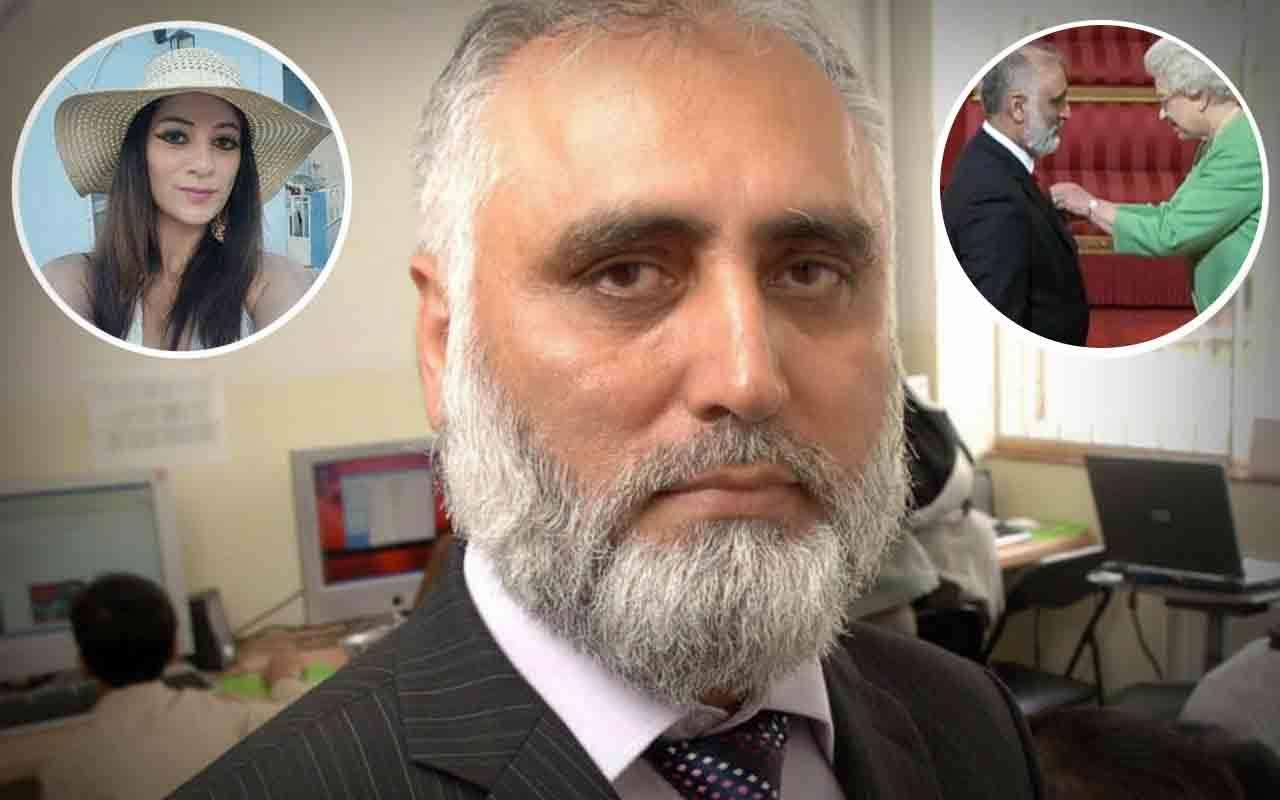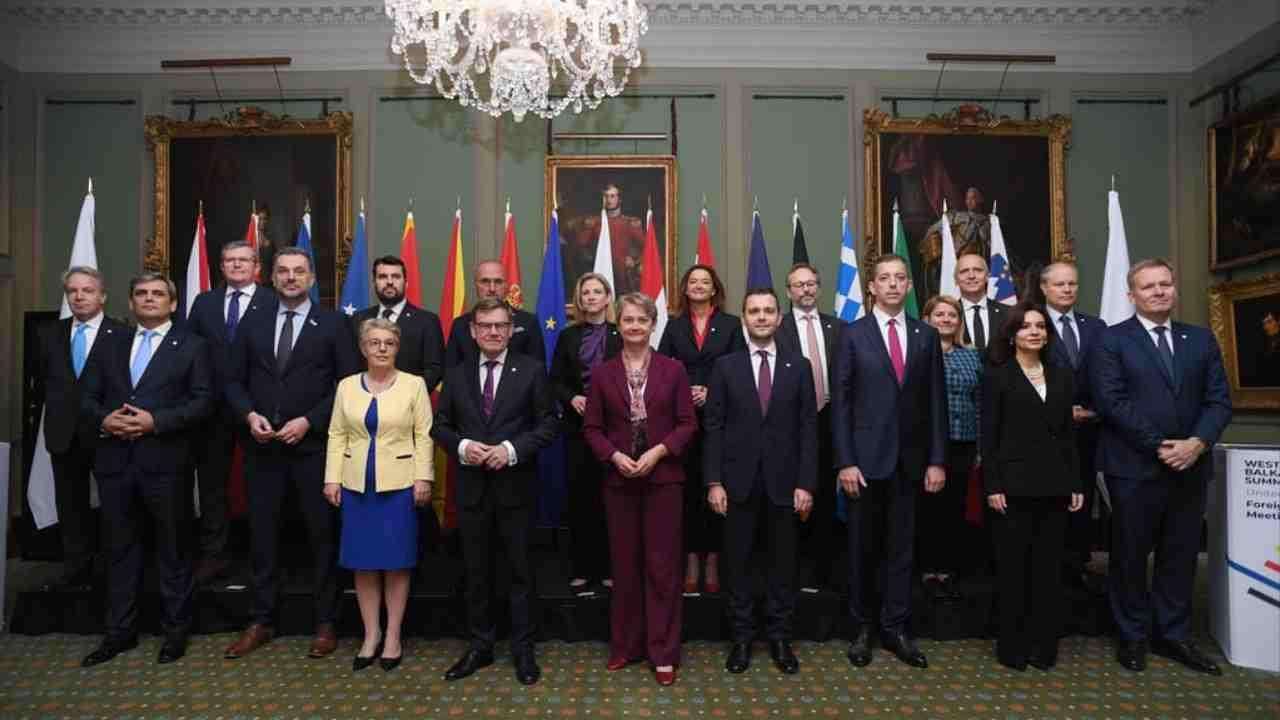In a clear and decisive re-orientation of Britain's foreign policy, Foreign Secretary Yvette Cooper has placed the fight against irregular migration at the heart of the Foreign, Commonwealth and Development Office (FCDO). This strategic pivot, a marked change from the broader "progressive realism" of her predecessor, David Lammy, is driven by the acute political necessity to curb small boat crossings and deliver a key promise of Keir Starmer’s government ahead of the next general election.
The Foreign Secretary's mission was underscored by the recent Western Balkans Foreign Ministers' Meeting, which she hosted at Hillsborough Castle in Northern Ireland on October 9th. While officially part of the 'Berlin Process' to counter Russian influence, the meeting's underlying objective—and Cooper's personal focus—was to pave the way for a crucial third-country migrant returns deal.
Kosovo Deal Imminent as Focus Intensifies
The diplomatic flurry continues this week. Following the Foreign Ministers' gathering, the Home Secretary, Shabana Mahmood, hosted her Interior Minister counterparts from the same Balkan countries in London on October 14th to drill down into operational anti-smuggling and border security measures. The culmination of these talks is expected at the upcoming Western Balkans Leaders' Summit in London next week, where observers widely anticipate an agreement on a migrant returns deal, with Kosovo emerging as the most likely partner.
To bolster cooperation, Cooper used the Hillsborough Summit to announce £10 million in new funding for innovative programs to tackle people smuggling in the Western Balkans and other key regions, including law enforcement training in Kosovo and stronger border security in Serbia. This financial commitment signals the UK’s long-term investment in regional stability as a direct means of protecting its own borders.
The Future of the FCDO: Policy over Power
Since taking the helm last month, Cooper has been determined to make the FCDO an operational arm of the government's domestic priority on migration. The department has already increased the number of staff dedicated to the issue, focusing on identifying targets for the UK's people-smuggling sanctions regime and accelerating negotiations for returns agreements.
In a move to increase efficiency, Cooper is actively seeking to break down bureaucratic silos within British embassies, ensuring FCDO and Home Office staff work in concert rather than isolation. Her extensive nine-year background in home affairs gives her a unique standing as an international dealmaker, a role she intends to amplify as she pursues the "unequivocal approach to returns" outlined in a recent joint migration statement by the government on October 2nd. The long-term policy outlook is clear: the UK is reforming its asylum system to end automatic settlement and family reunion rights for most irregular arrivals, shifting the default path to indefinite leave to remain to ten years of lawful residence, and implementing higher English language and contribution requirements.
A Rival Power Centre Looms
Cooper's assertive foreign policy agenda, however, faces a complex political landscape. Despite the FCDO's renewed focus, power is increasingly concentrated around National Security Adviser Jonathan Powell. A politically appointed confidant of the Prime Minister, Powell has become arguably the most influential figure in UK foreign policy, heavily involved in everything from the wars in Ukraine and Gaza to US relations and the controversial Chagos Islands agreement.
Powell's pervasive influence has led some civil servants to privately label him the 'real' Foreign Secretary. This dynamic sets the stage for a potential internal rivalry, with Cooper attempting to reshape the FCDO around a focused operational objective—migration—while Powell, who has recently faced scrutiny over his role in the collapse of a Chinese espionage trial, continues to range across the broadest strategic concerns.
Outlook: High Stakes and Hard Battles
The Labour government’s high-stakes gamble is to use diplomatic power to secure the border, a task upon which it expects to be judged at the next election. While bilateral returns agreements, like those already secured with France and Germany, are seen as vital, experts like former Border Force director Tony Smith warn they will need to be "ramped up a lot to get to a tipping point" that truly discourages future irregular arrivals.
For Yvette Cooper, the future of the FCDO is now inseparable from the UK's domestic migration crisis. The coming weeks, particularly the outcome of the London Western Balkans Leaders' Summit, will be the first major test of whether her determined, policy-driven approach can deliver the concrete results Starmer’s government urgently needs. The success of this pivot will not only determine her legacy but could well define the UK's global role for the remainder of the decade.








.svg)



_4.jpg)